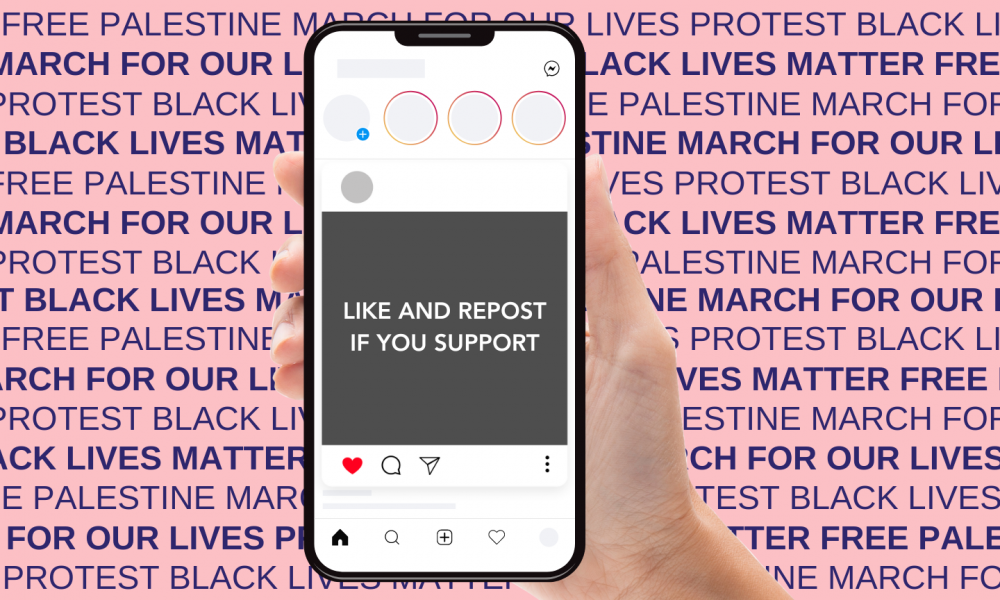By: Cheyenne Elizarraras and Maya-Claire Glenn
In a world filled with controversy and polarizing topics, modern society often turns to social media to voice their opinions.
The pressure to address political and social issues on social media websites including Instagram, Facebook, TikTok and X (formerly known as Twitter) has become more prominent in recent years.
During the Black Lives Matter movement in 2020, people used social media to spread information and speak out on social and political conflicts.
On June 2, 2020, Instagram users decided to participate in “Blackout Tuesday” in solidarity of the movement.
While social media can be a powerful tool for raising awareness about social issues, the change it can spark has limited range.
According to a study conducted by the Pew Research Center, 34% of social media users have taken part in online social activism concerning issues they see as important to them.
In comparison, only 14% of users have looked up information about protests and rallies happening in their area.
For many people, a simple repost on their Instagram story is enough peace of mind as a way to feel some sense of control and contribution, but what happens when posts expire and we continue about our day?
People tend to forget about social issues after they are off their timeline and move on to the next cause. This leaves behind a graveyard of important topics that people no longer dedicate any attention to.
It is one thing to share informative posts from trustworthy accounts to spread awareness, but it’s another to mindlessly click repost for the sake of maintaining an internet persona. Infographics allow viewers to understand quickly and casually tap into the next one.
Many celebrities took to Instagram after the Re’im music festival bombing on Oct. 7 to voice their support for Israel.
One of these celebrities, Justin Bieber, made the mistake of sharing a post with the text “Praying for Israel” pasted over the rubble of a building in Gaza.
Bieber’s mistake shows how reposting information can easily lead to rampant misinformation.
When reposting information from more reputable accounts, you are bound to find a follower who was unaware of the issue or event who can repost it to larger audiences.
Reposting information from reputable accounts can be beneficial in getting a message across to as many people as possible. However, if those people are surrounded by a limited group of people, it can become an echo chamber of misinformation.
If transformative content is in the right hands, social media can be beneficial to obtain a larger audience.
For many, keeping up with each social issue can feel overwhelming. Whether it is the ever-changing politics of LGBTQ+ laws in the United States, the latest on Israel and Palestine or the nearly forgotten war between Russia and Ukraine, online social activism can become a lot to handle.
Many people mean well when they use their social media platforms to speak up on controversial issues. However, it is also important to recognize that making a post can only go so far. Meaningful action in the real world is necessary, too.
Advocacy beyond performative social media posts includes voting, educating others and directly supporting those affected by oppression and marginalization.




